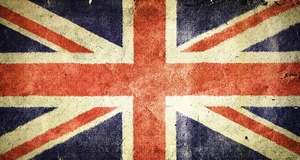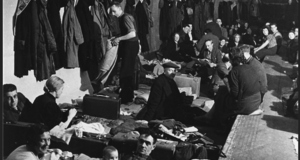New Labour’ has committed itself to giving each division of the United Kingdom a parliament or assembly of its own. Already we have a Scottish Parliament and a Welsh Assembly (just because Wales is a principality does it not deserve a parliament too?), as well as a nascent Ulster Assembly, unless the peace talks fail. So far England has been left out of this scramble for autonomy which has rather unfairly left it for now still under the control of the Westminster Parliament, giving Welsh and Scottish politicians a disproportionate say in British politics compared to those of England. Eventually, we are told, regional assemblies are likely to follow.
As the saying goes, a house divided against itself shall surely fall. So is the United Kingdom now a house divided, doomed to break apart in acrimony and infighting? Or does the creation of these new bodies inject a measure of democracy back into what was a decaying and impersonal institution?
Of course, it is easy to trot out the glib answers to these questions: it moves power closer to the people, say those in favour (but couldn’t you just give county and borough councils more powers and cash?); it encourages the break-up of the Union, goes the counter argument (but Ulster had an assembly for some time this century and it didn’t shatter the constitution). But what are the deeper issues?
Creating an intermediate tier of government is a great idea. Some issues are too wide or too complex for local councils while being too small or too localised for Westminster; these tend either to get left in limbo or are dealt with by either a local council without the power or scope to see it through (or several acting without co-ordination) or by a Westminster committee without local knowledge or sympathies. Creating an intermediate level would solve these problems.
But here arise new problems. Such an authority must have the power to be competent in its field or it is just a waste of taxpayers’ time and money, as of yet this problem does not seem to be fully resolved. It must have a clear idea of what sphere it deals with, there is no point in an extra tier if all it does is replicate what is done at local and/or central level, so far this area is rather vague but given time should cohere. The new tier’s position should be clearly
defined in terms of how far it has control over local councils and when it can oppose central government due to local concern. The Welsh and Scottish beef bans show this point clearly: is there a good local reason to oppose Westminster here? This again is a rather nebulous area but should start coming together through precedent if not by statute. And, most importantly: it must be fair! Giving other regions of the UK this tier while England remains influenced by non-English MPs on all matters (as opposed to just central matters) makes a mockery of the entire exercise and must be rectified as soon as possible.
An intermediate tier of government would, if correctly implemented and preferably complemented by more effective councils, certainly be very good for British democracy. For too long has local politics been dominated by Westminster dictate and local concerns been ignored while the fringes of the Union have felt marginalized. Giving people a greater say in their local affairs and letting those who feel marginalized have power can surely only be good.
But would division destroy the United Kingdom? Would, should, Wales, England and Scotland go their separate ways? The answer to this is that the creation of an intermediate tier does not necessarily have to be the precursor to break-up (after all both the USA and Germany consist of federations of states and seem happy enough). The Union could happily survive as a federation and would probably be better off like that than in breaking up.
A Britain separated into its constituent parts would be a bad thing. The most obvious point to note is that with three nations crammed onto one island there would be plenty of reasons for conflict (whether military, diplomatic or economic), for example, the Welsh water used in England; this would cause not only pointless strife but would also be detrimental to all the economies concerned. Separation would also make the economies of the resultant nations less competitive, with tariffs on trade between the three and conflicting taxes, and the creation of borders in such a small place would make travel needlessly awkward. Also, while Wales and Scotland are profitable in many ways, England is the economic powerhouse of Britain (it has far more workers/taxpayers than the other two combined) and its loss to the ‘Celtic fringe’ would almost certainly harm them more than their loss to England. Separation would also diminish Britain’s voice on the international stage as well as its military standing, as its size and prosperity are divided into three. None of these are pleasant prospects. Of course, they would mostly be negated in a newly divided Britain if the constituent parts joined a federal Europe, but that raises a whole new set of pros and cons…
A federal Union of some kind is quite probably the best and most logical outcome to the current debate. The Union would retain its international standing, military might and economic strength, the ‘Celtic fringes’ would bring their unique and diverse strengths to the Union with England providing the backbone, while Westminster would continue to make the decisions on those issues that affect the entirety of Britain and helping to co-ordinate the regions, while strong regional and local government would preserve democracy and provide local solutions to local problems. The division of Britain is almost certainly coming: it is vital that it makes Britain stronger rather than destroying it.


















